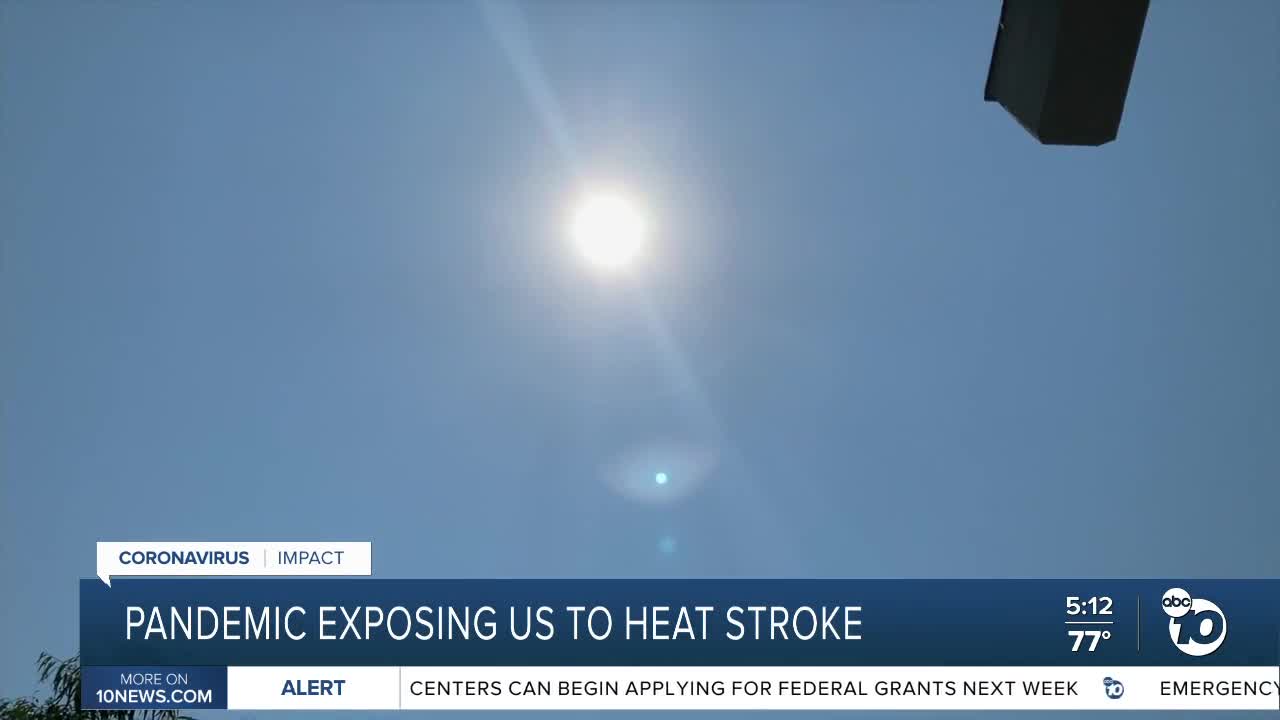SAN DIEGO (KGTV) - The restrictions due to the pandemic are exposing us to another threat.
Between restaurants and gyms being outside and SDG&E urging energy conservation during the heat wave with all of us at home, we're more exposed to the heat and the potential dangers that come with it.
Nurse Practitioner Samantha Gambles Farr works in the ICU for UC San Diego Health and said she's seen a handful of cases in the last month, which is more than normal.
Each year, the Center for Disease Control and Prevention says an average of 658 people die from extreme heat in the U.S.
Gambles Farr said it's important to know the difference between heat exhaustion and heat stroke, "when you have heat exhaustion, your skin will be cold, clammy and you'll be sweaty. When you bridge over to heat stroke you'll have no sweating, you'll be red, and your body temperature will be over 103 degrees."
Other symptoms for heat exhaustion include:
• Muscle cramping
• Fatigue
• Headache
• Nausea or vomiting
• Dizziness or fainting
Symptoms for heat stroke:
• A body temperature greater than 103°F (39.4°C)
• Red, hot, and dry skin (no sweating)
• Rapid, strong pulse
• Throbbing headache
• Dizziness
• Nausea
• Confusion
• Unconsciousness
If you're suffering heat stroke, Gambles Farr says your body is literally cooking, "you can start having what we call multi-system organ failure in which your kidneys can be affected, you're not getting rid of waste in that point in time and a lot of times these patients become unconscious."
One of the dangers with drinking alcohol while in the heat, Gambles Farr explained, is that person isn't moving around as much and therefore unable to recognize the affect of the heat. She said the situation becomes most dangerous when someone who is intoxicated passes out in the heat.
If you see someone suffering from heat stroke, call 911. While waiting for help, cool the person down with water, or put ice packs on their neck and armpits.
To stay healthy, the CDC and Gambles Farr say stay hydrated, avoid alcoholic beverages, wear sunscreen and loose fitting clothing.
Those most at risk, according to the CDC, are children, the elderly and those with chronic medical conditions



